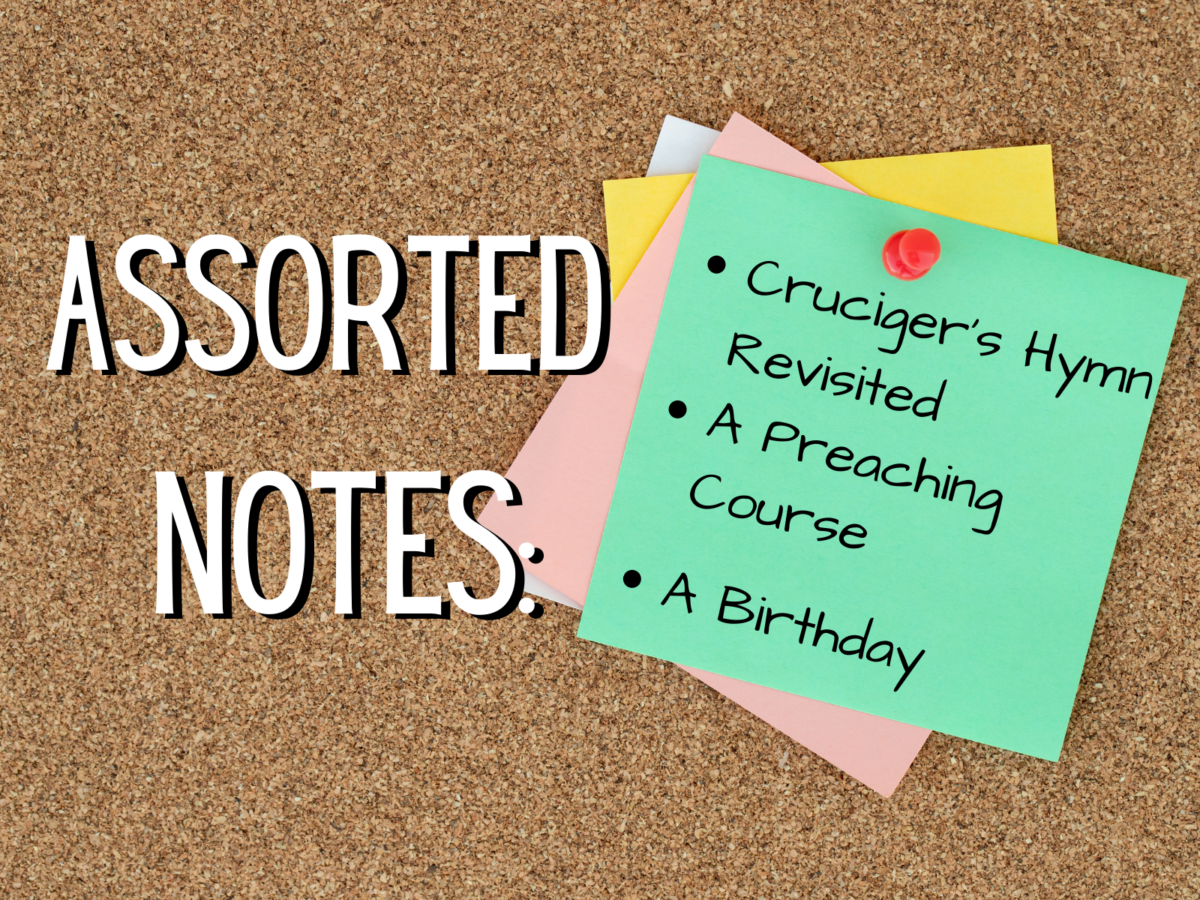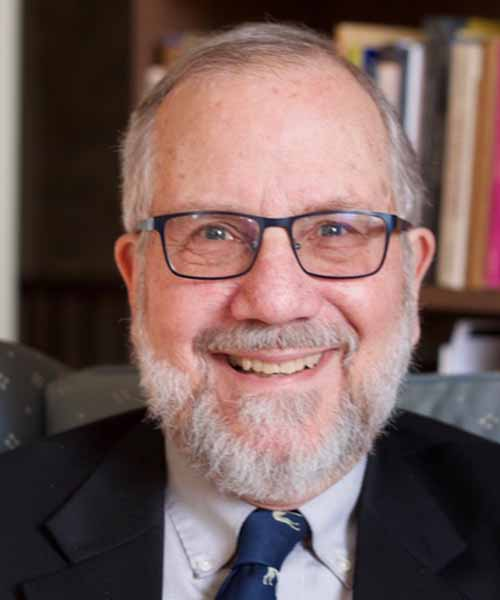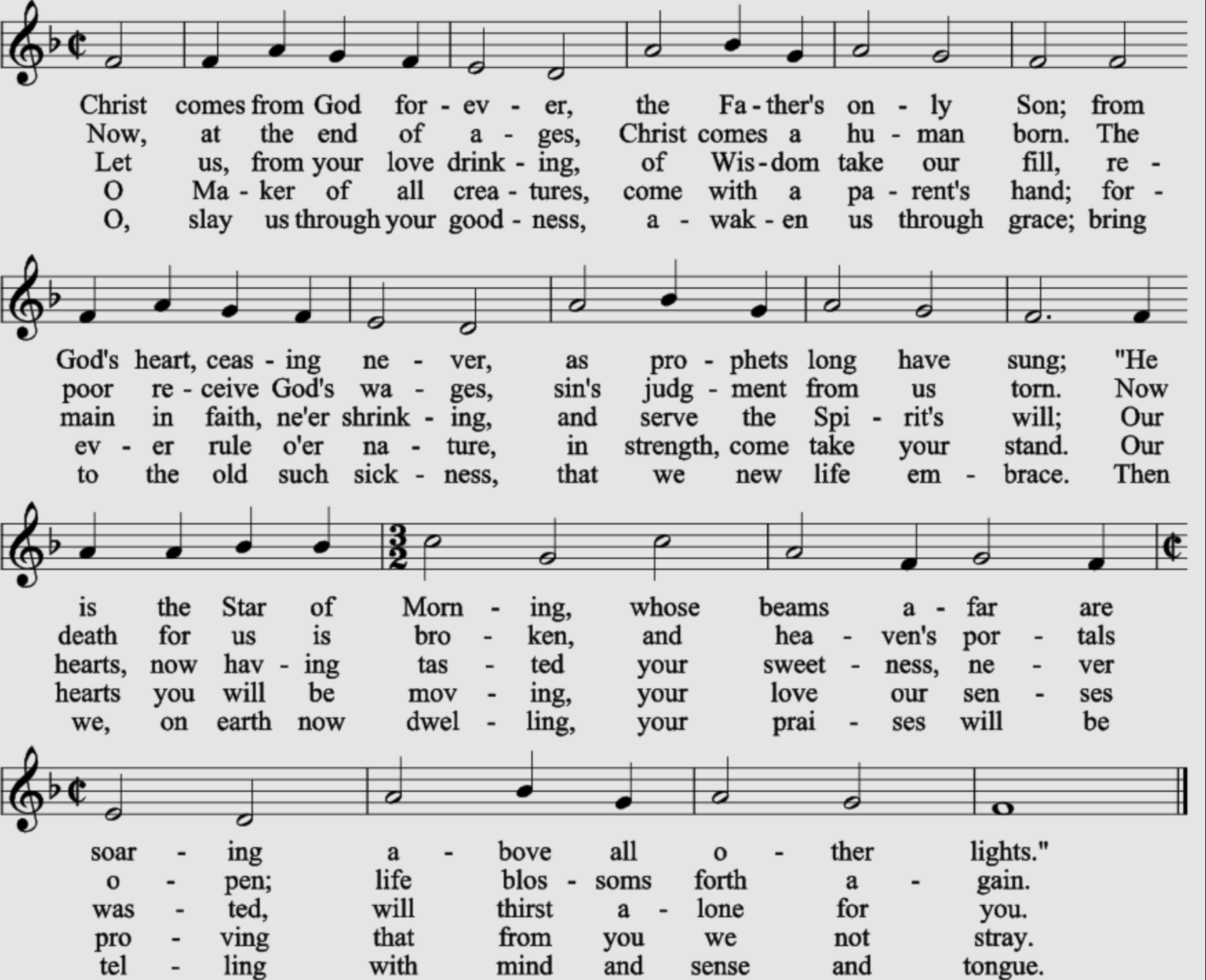Co-missioners,
Our editor sends three notes today, two brief, one longer.
Peace and Joy,
The Crossings Community
__________________________________________________________________
Assorted Notes:
Cruciger’s Hymn Revisited, A Preaching Course, A Birthday
by Jerome Burce
1. Cruciger’s Hymn Revisited
I got an altogether unexpected note from Timothy Wengert three Thursdays ago.
For those not in the know, Dr. Wengert is one of America’s leading Reformation scholars, with particular expertise in the work of Luther and Melanchthon. He taught for twenty-four years at the Lutheran Theological Seminary at Philadelphia, where he continues to be recognized as Professor Emeritus of Reformation History. He has written a score of books. Along the way he was tapped to serve with Robert Kolb as coeditor of what is now the standard English translation of the Book of Concord.
Professor Wengert was responding to our post of January 19 about Elisabeth Cruciger and her remarkable hymn, Herr Christ, der einig Gotts Sohn. It included a lament that American Lutherans are deprived of the chance to sing the hymn’s brilliant closing stanza. English translators of the 19th century had opted to ignore it. It can’t be found in the version of the hymn that appears in our current hymnbooks.
Comes a delightful surprise. It turns out that Professor Wengert produced his own translation of the hymn a while back. He says it was often sung at the Philadelphia seminary in the 1990s and 2000s. Blessed be the students who got to sing it. Here is his turning of the striking German in that final fifth stanza:
O, slay us through your goodness, awaken us through grace;
bring to the old such sickness that we new life embrace.
Then we on earth now dwelling
your praises will be telling
with mind and sense and tongue.
Somewhere in this post you’ll find a photo of the entire translation and the tune it’s set to. My thanks indeed to Dr. Wengert for sharing this with me and granting permission to share it with you too. If you’re tempted to share it still further—with your pastor, perhaps? your organist?—be sure that Timothy J. Wengert gets credit as translator.
Meanwhile, preachers and hearers alike will do well to keep the above stanza in mind as they wrestle with the gospel appointed for this coming Sunday, Matthew 5:21-37. “O, slay us through your goodness….” Isn’t that what Christ is doing here?
On another note: if, like me, you want to learn more about Elisabeth (von Meseritz) Cruciger, Dr. Wengert points us to the Dictionary of Luther and the Lutheran Traditions (Baker Academic, 2017) and to Mary Jane Haemig of Luther Seminary who, he says, has written several articles about her.
+ + +
2. A Preaching Course
Last week’s post featured a sermon by Fred Niedner. I have since learned that Fred will be teaching an online class on the Gospel texts for this coming Lent, Series A in the Revised Common Lectionary. It starts on February 20, a week from this coming Monday. I assume there’s room for last-minute registrants.Zoom allows for such flexibility. I assume all the more that whoever takes the class will get far more return on the forty-five dollars involved than one usually does. I commend it to you.
The class is available through the Lutheran School of Theology in St. Louis. Bob Bertram set this up in the 1990’s as an extension of the Lutheran School of Theology in Chicago. While that connection has since dissolved, LST St. Louis continues to operate as a stand-alone institution, offering upwards of a dozen courses per year in serious theology for clergy and laity alike. We understand that the ELCA’s Central/Southern Synod directs its synodically authorized lay ministers there for some of their essential training. All courses are not-for-credit. This is hardly to say that they’re not of value. Quite the contrary, as you’ll discover immediately if you sign up for Fred’s class.
A reminder that Fred continues to serve in retirement as a Senior Research Professor at Valparaiso University. His ongoing contributions to our work at Crossings have been invaluable, as we trust you’ve been noticing.
+ + +
3. A Birthday
Today is the 99th birthday of one Willard Burce, known to friends and colleagues through the years as Bill. I call him Dad. Presumptive as this may seem, I invite you to join me now in thanking God for him.
Bill spent a career of forty years in Papua New Guinea as a Lutheran missionary. How he got there from a rural upbringing near Eau Claire, Wisconsin is one of those deliciously implausible stories that more or less comprise the entire history of the church. His father was vaguely Methodist, his mother a Norwegian Lutheran. He landed even so in the Missouri Synod system that piped him through Concordia College, St. Paul to Concordia Seminary, St. Louis, where he earned an S.T.M (Master of Sacred Theology) in addition to the B.D (Bachelor of Divinity) that was standard in that era. In 1948 the Missouri Synod dispatched him and another new graduate to New Guinea, a vast island which even now is more or less unknown to Americans. Their task was to establish Lutheran mission work in some highland valleys previously closed to missionaries of any kind. They were to do so in cooperation with workers from that segment of the Australian Lutheran Church with which Missouri was in fellowship.
Be it said that Lutherans had been working in New Guinea since 1886. The first of them arrived from Germany. Others came later from Australian and American churches with historical connections to Wilhelm Loehe and the Neundettelsau Mission Society. When Bill and his colleague landed in the country, representatives of these groups welcomed them warmly and offered their cooperation too. Among much else, they helped connect them to indigenous Lutherans who were eager to serve as frontline evangelists in the new venture.
Bill was all of twenty-four when he reached New Guinea. His recently wedded wife (my mother) was already carrying her first child (not me). Adventures loomed. When I came on the scene a mere four years later the family was thoroughly settled and very much at home. So were the other young missionaries involved in the early stages of that enterprise. I find this astonishing as I think on it today.
Bill and his ordained colleagues concentrated in those initial years on basic evangelism, on learning two new languages, on translating Bible stories and the Church’s essential liturgy; on exploring the culture of the people they sought to serve, and on wrestling with how best to communicate the Gospel to people embedded in that culture. They devised teaching materials and got help from their spouses in teaching newly recruited co-workers how to read and write. Other lay colleagues established schools and clinics. They built and staffed a hospital. They constructed and furnished houses for Westerners to live in with a measure of comfort. Bill quickly emerged as a leader of this entire group. With that came a heap of administrative duties.
The first Lutheran baptisms in those valleys took place in 1957. Many more followed. In 1960 Bill was assigned to set up a formal training school for evangelists and future church leaders. Meanwhile he had begun working on a translation of the Gospel of Mark into a language called Enga. This became the topic of his thesis for a Th.D in New Testament studies. He earned this at Concordia, St. Louis in the early 60’s. He would soon be playing a key editorial role in an inter-denominational project to translate the entire New Testament into New Guinea Pidgin English—Tok Pisin, as it’s called these days.
In 1967, Bill was reassigned to the faculty of a newly established pan-Lutheran seminary in the coastal city of Lae. English was the language of instruction here. He would serve at Martin Luther Seminary for twenty-one years, twenty of them as Principal. In that role he was instrumental in establishing the Melanesian Association of Theological Schools as an accrediting institution for seminaries throughout Papua New Guinea, both Protestant and Catholic.
Over the years Bill came to be regarded as one of the foremost Lutheran theologians in Papua New Guinea. In what for him were the very busy ‘60s—no wonder his son didn’t see much of him—he served on an inter-Lutheran committee charged with developing a statement of faith that all Lutheran groups in the country could subscribe to. To him fell the task of drafting the opening chapters that laid out the key Lutheran essentials, the distinction between Law and Gospel in particular.
The eventual statement, issued in official English and Tok Pisin versions, was indeed adopted by all Lutheran groups in PNG, whether LCMS or ELCA-related. I used it when I taught basic theology at a second-tier Tok Pisin seminary in the 1980’s. I was struck then, and still am, by the clear, limpid language of those opening sections, and by how well they connected confessional theology with the cultural realities of Papua New Guinea. Here are a couple of passages from the official English version.
On the reception Christ receives from sinners—
“When Christ came into the world, men crucified Him. And that is what [people] still do today…. They have no liking for Christ’s glory. They blaspheme His name and despise His work…. They make no use of Him to draw near to God. They have no use for Him as Mediator and Redeemer.
“It is like a rich man who does not use his money to buy worthwhile things. Instead he buries most of it in a hole in the ground and hangs the rest around his neck for decoration.”
“This is what sinners do with Christ.”
[Note the second paragraph in particular. My students resonated to it.]On a preaching issue, as relevant to American Lutherans today as it was to Papua New Guinean Lutherans fifty years ago—
“Many pastors, evangelists, and elders stand up in the worship services and exalt the Law along. They preach the Law at great length and roast their hearers. But they say nothing about the Gospel of Jesus Christ. In this way the conceal the glory of the Lord and dishonor his name.
“There are also many church members who sit on the benches and, when they hear the Law, think: Now we are hearing the real thing. But when the elder preaches the Gospel of Christ, they fall asleep, or they say, ‘We have heard enough of this before.’”
[“Aargh,” say we who have been there, seen that. Fallen for it, perhaps.]On the difference between Law and Gospel—
“The Law issues commands to us sinners concerning what we must do and what we must not do. But the Gospel tells us what the Triune God has already done for us.
“The Law makes us sinners happy. But if we repent and are sorrowful over ours sins, the Gospel makes us happy.
“The Law strikes us sinners down. But the Gospel raises us up and strengthens us.
“The Law accuses us and threatens us with punishment. But the Gospel says, ‘Your sins are taken away.’ And it gives us the righteousness of Christ.
“The Law punishes our sins and kills us. But the Gospel frees us from the prison house of sin and gives us life.”
[Yes, this is English designed for people who speak it as a second language. It’s also clear, effective English with a rhythmic bounce that catches most any ear.]For me the greatest gift in the Statement’s section on Law and Gospel was to find it speaking not of the Law’s uses, but of the Law’s actions—two of them, the first maintaining order in the world, the second exposing our sin. The problem with “use” is that it tempts us to imagine ourselves as the users. Hence the endless Lutheran argument about the Law’s so-called “third use.” “Action” puts God alone in the driver’s seat. You and I can only be on the receiving end of what the Law of God does to every human being.
The Statement likewise speaks of two actions of the Gospel, one perfect and complete, the other a work in progress. The first adorns us with the righteousness of Christ. The second delivers the Holy Spirit who leads believing sinners through daily approximations of the holy life. Any who studied under Ed Schroeder will recall him speaking this way too.
Bill told me once that he got this “action” language from Edmund Schlink’s Theology of the Lutheran Confessions. I didn’t look for it there at the time. I still haven’t.
My mother died four years ago on this same day, February 9. When the day comes to bury Bill as well, I will describe him to his grandchildren as a conservative Lutheran theologian in the best and most faithful sense. From that conservatism—that insistence on reading the Scriptures through the lens of the confessions—came a radical grasp of the Gospel that few people I’ve known have been able to match. His was an immensely generous spirit. For now it still is. When next I visit, I’ll find that servant of Christ still looking at others, whoever they be, through the eyes of Christ. It took this son of his far too long to understand that this is how he operates.
I daresay each of you knows someone who also operates this way. They’re all around us. God pops them up wherever the Gospel gets rightly told. Theirs too will be one of those implausible stories the Spirit specializes in producing. There are many more that I could tell.
So think of them. Thank God for them. If so inclined, give me a chance to thank God for them too. Surprise me with a note as Professor Wengert did three weeks ago.
Thursday Theology: that the benefits of Christ be put to use
A publication of the Crossings Community








You must be logged in to post a comment.